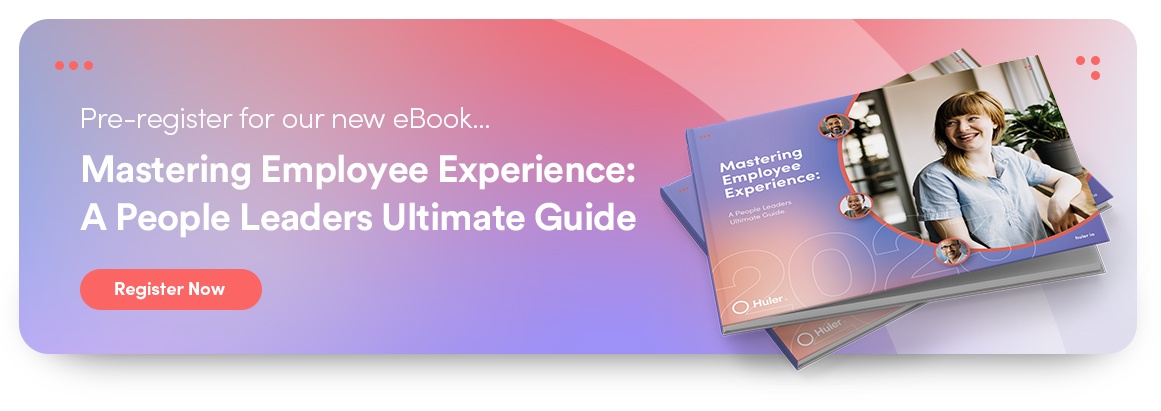Staged at the Caesars Forum in Vegas, Unleash America comprised of three days of thought leadership, case studies, product announcements, networking, peer discussions and more.
It was great to see so many noteworthy exhibitors and insightful discussions from industry leaders on how to succeed in what can only be described as turbulent times for HR as we learn to cope with exponential change.
What stood out for me this year is that we need to rethink how we attract, engage and retain talent and create cultures that empower our people, not only today, but also for the future.
So, what did we learn from Unleash? Here’s our top 6 takeaways….
Connect people with purpose
Dean Carter, Chief People Officer at Guild Education, set the tone for the conference with his opening keynote which emphasised how HR teams are at the helm of instilling purpose and creating a better organisation in turbulent times.
The key to success?
- Creating meaningful purpose and sense of fulfilment
- Being bold constant with our values to create a sense of belonging
- Allowing time to regenerate – giving your people the time they need to be human and think about what we are putting back into people’s lives versus what we take out
- Opportunities to build communities that allow your people to play
- Redesign and rethink your HR teams to elevate the HR profession and ensure the right people get a seat at the table
Hire for culture, not skills
An underlying theme across many of the sessions was how the rise of AI and innovative tech is creating less of a need for innate skill. Instead, we need to shift to a growth mindset where we look at employee potential and culture add.
HR teams are at the core of creating growth mindset, ensuring we create opportunities to upskill, coach and mentor our people and encourage multi-directional career paths.
Some great examples of this included Coca-Cola’s ‘Thrive’ programme which is reimagining the career experience and Estee Lauder’s approach to dynamic talent ecosystems to support their biggest opportunities for organisational growth and capability.
AI will change the way we lead
It comes as no surprise that AI was a big topic of conversation, and with rapid change in the industry its being used more and more by HR teams to improve efficiency, reduce cost and enable better decision making.
Predictions were being made around how it will affect the leadership role in the future – putting more emphasis on human expertise and people management and less on specialist skills.
There are some key limitations we need to be aware of though, such as:
- AI cannot give you the complete picture and we need to dive deeper into the data to understand and interpret the outcomes
- There’s big data privacy and cybersecurity risks and we can expect to see considerable changes in regulations over the coming weeks to months
- AI cannot replace the human touch and it’s important to strike a balance between technology and human involvement to gain the greatest benefit.
Put simplicity at the core of your strategy
Whether it was a session on change management, company culture, talent acquisition, DEI or learning and development, there was one theme that shone through – simplicity.
We’re in a world where we’re working with a plethora of work tech on a day-to-day basis and swimming in a sea of notifications and content. This is resulting in a pandemic of frustration, productivity loss, disengagement, burnout and high staff turnover.
As a result, it’s never been more important to have a core strategy that brings everything together and makes it simple for your people to do their job – right from pre-boarding all the way through to offboarding.
It all starts with people-first leadership
Perhaps an obvious one, but an important one to end on.
Now, more than ever, HR leaders are looking for an employee-first strategy but with a rapidly changing landscape this is perhaps easier said than done. That said, it doesn’t have to be as complex as it seems.
As HR leaders, you need to ensure you:
- Don’t assume, dig into the data and really understand your people’s needs
- Establish organisation-wide alignment in your business processes – when everyone commits to changing the culture, that’s when real change will happen
- Develop employee feedback opportunities and encourage real-time recognition all year round (don’t just save it for the end-of-year review)
- Establish two-way trust and empathy
- Invest in your employees and provide the resources and opportunities employees need to achieve their goals





